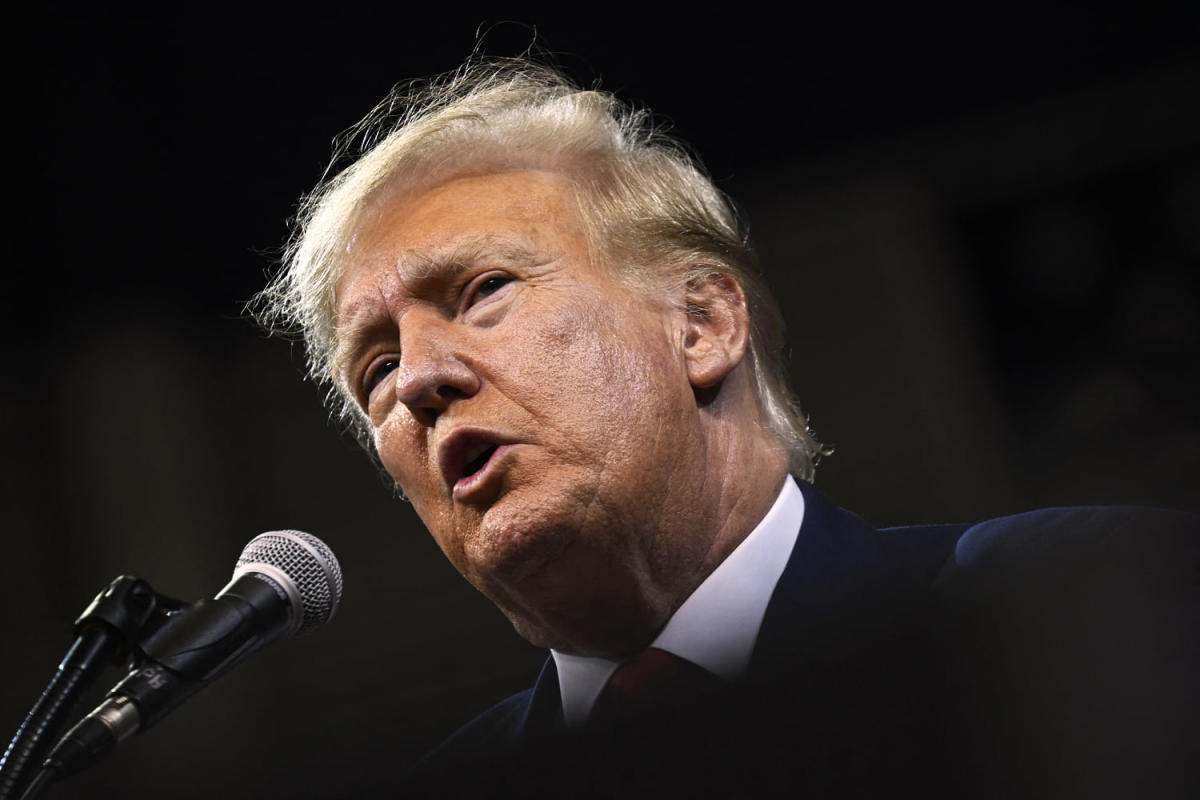WASHINGTON — Former President Donald Trump on Wednesday asked the Supreme Court to overturn a state court ruling in Colorado that said he is ineligible to appear on the state primary ballot because of his actions leading up to the Jan. 6, 2021, attack on the U.S. Capitol.
The Colorado Republican Party had already filed its own appeal. Based on language in the state court ruling, Trump for now remains on the Colorado ballot until the Supreme Court acts.
The Colorado Supreme Court based its Dec. 19 ruling on language in the Constitution’s 14th Amendment that prohibits those who “engaged in insurrection” from running for various federal offices. The case raises various novel legal questions, including whether the language applies to those running for president and who gets to decide whether someone engaged in insurrection.
If the ruling is allowed to stand, it would “mark the first time in the history of the United States that the judiciary has prevented voters from casting ballots for the leading major-party presidential candidate,” Trump’s lawyers said in the filing.
The court, the lawyers said, should “return the right to vote for their candidate of choice to the voters.” Only Congress has the authority to decide who is eligible to serve as president, they added.
Trump’s legal team also argues that even if the provision could be applied to the former president, he did not engage in insurrection on Jan. 6, citing a “long history of political protests that have turned violent.”
Separately, the Trump campaign put out a statement saying the Colorado ruling was an “unAmerican, unconstitutional act of election interference.”
The state high court’s decision reversed a lower court’s ruling in which a judge said that Trump had engaged in insurrection by inciting the riot on Jan. 6 but that presidents are not subject to the insurrection clause of the 14th Amendment because they are not an “officer of the United States.”
The state court said its ruling would remain on hold indefinitely, allowing Trump and his allies to file appeals with the Supreme Court. The Colorado GOP was the first to do so, on Dec. 27.
Interest in the Colorado case was heightened when Maine’s top election official concluded Thursday that Trump was ineligible to appear on the Republican primary ballot in that state, too. Again, the decision was put on hold so Trump can appeal in state courts in another case that could reach the justices. He filed that appeal Tuesday.
The Colorado case reaches a Supreme Court with a 6-3 conservative majority that includes three justices Trump appointed. Legal experts are divided over how quickly the court might want to intervene and how it might ultimately rule on such an unusual legal question.
The Colorado court’s ruling specifically addressed the Republican primary in the state. It remains to be seen whether the Supreme Court feels it would need to take up the issue once the filing deadline has passed with Trump remaining on the ballot.
One other option the court has is to take up the case and issue a ruling that would then apply to the general election and potentially in other states where similar lawsuits targeting Trump have been filed.
The Supreme Court’s central role in the Trump legal wars has drawn comparisons with the 2000 election, when the justices ended up issuing a pivotal 5-4 ruling that ended the Florida recount, enabling the Republican candidate, George W. Bush, to prevail over his Democratic opponent, Al Gore.
In a related matter, the justices are set to hear oral arguments in a case involving a man charged for his actions on Jan. 6 that could affect Trump’s prosecution in Washington, where he has been charged under the same federal law at issue. The Washington case is one of four different criminal prosecutions Trump faces.
This article was originally published on NBCNews.com








